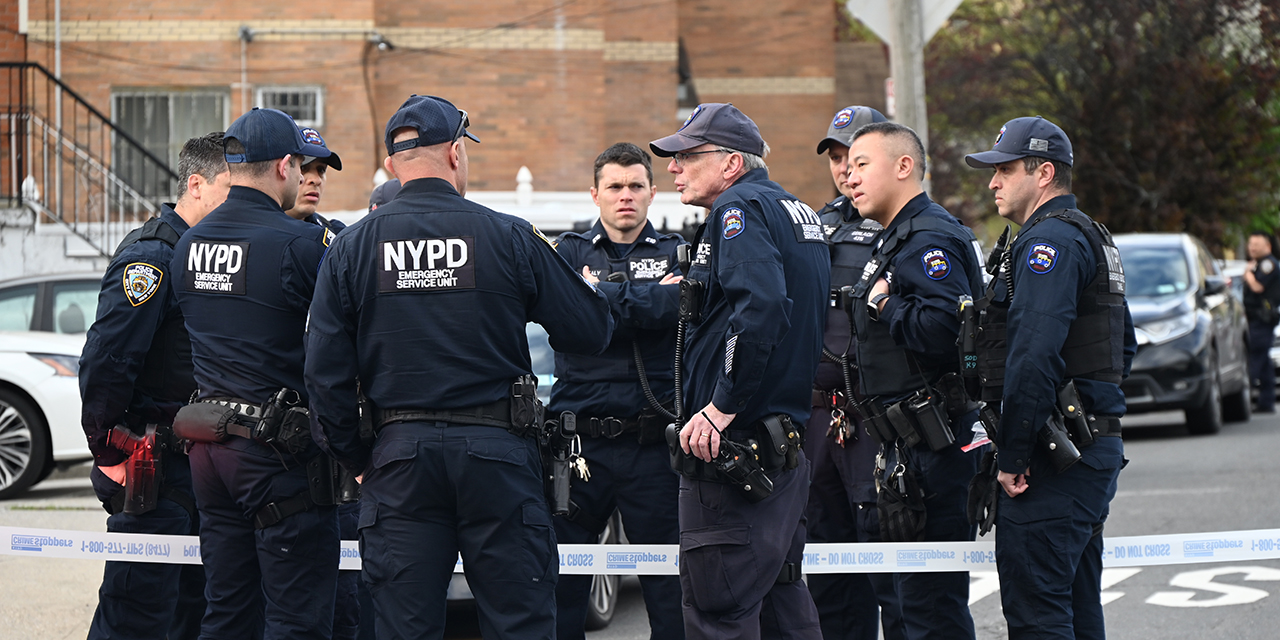A recently launched effort to recall Los Angeles district attorney George Gascón might represent the first encouraging sign for opponents of the “progressive-prosecutor” movement in American cities—among the most consequential developments in criminal-justice policy in recent years. From Brooklyn, Philadelphia, and Boston to Chicago, St. Louis, and Dallas, cities have handed the job of representing victims and holding criminals accountable to self-styled “reformers” and former defense attorneys who campaigned on promises to restructure our nation’s criminal-justice system.
“Progressive” prosecutors around the country have, among other things, adopted non-prosecution policies for certain misdemeanor offenses—particularly quality-of-life crimes; pursued pretrial diversion at higher rates and in a broader scope of cases; pursued pretrial detention less aggressively than their predecessors; and committed to pursuing more non-carceral responses to crime.
For those who have viewed tough-on-crime prosecutors as the source of many of the justice system’s ills, the progressive-prosecutor movement constitutes a simple and effective strategy. Why bother with the expensive and cumbersome endeavor of influencing the political process if, by winning just one election, you can make as big of a dent? Much to the chagrin of those worrying about reforms going too far, too fast, the victors in these races have made their marks on the system far quicker than have many successful legislative-reform campaigns.
The latest trophy on the movement’s mantle is a good example. When Los Angeles County, population of 10.04 million, elected Gascón as district attorney over incumbent Jackie Lacey in November, the number of Americans living in jurisdictions with state, county, and district attorneys who ran on promises to prosecute fewer offenses or pursue more permissive resolutions reached approximately 40 million. All signs pointed to Gascón’s election representing another disheartening defeat for tough-on-crime types, suggesting that support for basic law and order was continuing to dwindle. Gascón, who previously served as the San Francisco D.A., got busy right away: on his first day in office, he announced a flurry of consequential policy shifts, enacting prohibitions on seeking certain sentencing enhancements and speaking in opposition to prisoners’ releases at parole hearings.
But those troubled by the new D.A.’s permissive posture toward even hardened criminals may now have some cause for optimism. Rather than going down without a fight, some Los Angeles line prosecutors have filed suit against Gascón, challenging the constitutionality and legality (under the constitution and laws of California) of some of his more controversial initiatives. And, as if inspired by the fact that prosecutors have taken a stand, some L.A. citizens have undertaken an effort to recall the newly elected lawman, revealing that a constituency willing to push back still exists.
What’s behind the new resistance remains something of an open question. The recall effort likely isn’t the product of genuine surprise about the D.A.’s radical approach. After all, Gascón had a record from his time in San Francisco, and he’s pursuing reforms that he explicitly promised to pursue. It seems more likely that his natural opponents have simply been galvanized by seeing his plans being put into practice.
That opposition may, however, have grown substantially since Gascón’s election—adding to its ranks crime victims and their loved ones, who may be regretting what had seemed like a lower-stakes vote. Such disillusionment may be most pronounced in plurality-black and majority-Latino precincts, which Gascón won by margins of 16 and 10 percentage points, respectively. Those groups have borne the brunt of the city’s spikes in shootings (40 percent) and homicides (25 percent) last year; blacks and Latinos constituted 85 percent of 2020 homicide victims in both the city of Los Angeles and L.A. County, according to the Los Angeles Times. Recent polling suggests that Democratic voters most likely to throw their support behind more conservative candidates are those “with conservative views on crime, policing, and public safety.”
Blacks and Latinos have expressed strong support for criminal-justice reforms, but their backing does not extend to the violent or to those with high risks of reoffending. As Vox’s German Lopez reported a few years ago, a national polling effort revealed that “no majority of any group—whether divided by race, religion, ideology, political party, employment, or any other category . . . supported reducing prison sentences for violent criminals with a low risk of committing another crime.” As violent crime rises in Los Angeles, the gap between Gascón’s lenient disposition and the public’s less forgiving sense of justice should become more pronounced.
What effect this will have on the progressive-prosecutor movement is another matter. Gascón garnered almost 54 percent of the vote in November, winning by more than 200,000 votes. It’s not obvious whether the recall measure will acquire the registered-voter signatures it needs to get on the ballot—more than half a million—let alone whether it can succeed in removing Gascón from office. What is clear is that Gascón and his ilk have a conception of justice that a great many crime victims, police officers, and prosecutors reject. Whether he stays or goes will depend on who Angelenos think the real bad guys are.
Photo by Jesse Grant/Getty Images for Patrisse Cullors





